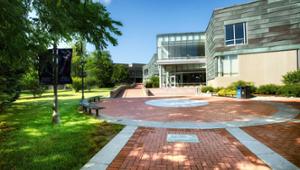
History
The goal of the History Department is to introduce students to the histories of a broad range of cultures, peoples, places, and times while honing their skills in writing, speaking, and research.
About the Major
At Hamilton, the study of history engages every dimension of the past, from the human experience to the natural world. It is the study of change and continuity, of what was different and what was shared, of what was believed and what was done. Concentrators develop original research projects, drawing on Hamilton’s rich library resources and on collections from around the globe. Many students conduct research independently or collaborate with faculty members. Graduates have pursued careers as teachers, lawyers, journalists, medical professionals, curators, and professors, among others, and have received degrees from renowned graduate programs.
Students Will Learn To:
- Summarize historiographical debates within and across disciplinary subfields
- Select and analyze historical evidence
- Create a clear, specific, coherent historical argument
A Sampling of Courses

Race, Science, and the Origins of the Modern World
This historiographical seminar traces theories of race from their origins in the Renaissance to the present. It examines how race, in conjunction with sex and gender, developed as an idea through the natural sciences in the context of Europe’s global imperial expansion. Subjects include natural history, breeding livestock, taxonomy, racial typology, evolutionary theory, and genetics.
Explore these select courses:
This course thinks critically about sound, listening not only to sound recordings but to the resonances of silence, voice, and noise in literary and historical texts. How do sounds come to mean what they do? What happens when sonic concepts travel? How are the soundscapes of daily life, both past and present, structured by race, gender, class, and other social formations? How have writers and artists reconceptualized sound and music to contest hierarchies? We will study James Baldwin, Frantz Fanon, and Zora Neale Hurston, among others. Topics include the relationship of sound to built/natural environments; (de)colonization and the ‘listening ear’; global, diasporic, and local soundscapes; and technologies of sound production and listening
A survey of topics, themes, and methods in environmental history, focusing on Africa, Asia, and Latin America. Provides a foundation and prepare students for advanced coursework and research in history and environmental studies. Examines major events and trends through an environmental framework, illustrating connections over time. Major course themes include biological exchange between regions, the industrial revolution, climate change, and linking historical environmental issues to contemporary concerns.
Meet Our Faculty
Russian and Soviet history, Central Eurasian history, and history of the modern Middle East
Douglas Ambrose
Sidney Wertimer Professorship for Excellence in Advising and Mentoring and Professor of History
U.S. history; the old South; Christianity in American history; American colonial history; the American founding era and proslavery thought
Mackenzie Cooley
Associate Professor of History, Director of Latin American and Latine Studies
history of science; early modern world; Colonial Latin America; environmental history; intellectual history; digital humanities; history of gender and sexuality; animal studies; genetics and history
social and economic history of the early Middle Ages; history of law and mechanisms of conflict resolution; the perceptions of non-Christian peoples and lands in medieval manuscript culture
the British Empire; modern Britain and Ireland; international humanitarianism
Environmental history, social history, political economy, modern North Africa, modern Middle East, global history
20th century American radical movements; history of the 1960s; the history of mountaineering and exploration
African-American history; diasporic and transnational history; race and empire in 20th-century U.S. and France
military history, Civil War memory, African American military history
cultural and social history of modern South Asia, specializing in the history of nationalism, colonialism, and women
Chinese history, culture and religion; Confucian ritual and the imperial cults devoted to Heaven and to Confucius
Christian Goodwillie
Lecturer in History, Lecturer in Literature and Creative Writing
Southeast Asia, South Asia, global history, environmental history, legal history, history of capitalism
U.S. environmental history, history of food and agriculture, and historical geography
Careers After Hamilton
Hamilton graduates who concentrated in history are pursuing careers in a variety of fields, including:
- Congressman, U.S. House of Representatives
- Director of Education & Interpretation, National Museum of American History
- Editor, New York Post
- Environmental Policy Analyst, U.S. Environmental Protection Agency
- Physician, Texas Oncology
- Professor of Military History, U.S. Army
- Executive Director, JPMorgan Chase Bank
- Director, Information Technology, RBS Global Banking & Markets
- Special Agent, Federal Bureau of Investigation
Explore Hamilton Stories

Brown ’24 Carves a Unique Path in His Time at Hamilton
Quinn Brown ’24, a history concentrator, carved a distinct path for himself at Hamilton. The faculty selected him as winner of this year’s James Soper Merrill Prize, awarded to the senior “who, in character and influence, has typified the highest ideals of the College.”

Six Awarded Gilman Scholarships
Six Hamilton students — including history concentrator Lara Barreira ’25 — are studying abroad during the spring 2024 semester thanks to assistance from Benjamin A. Gilman International Scholarships.

Isserman Reviews American Communism History in The Guardian
Maurice Isserman, the Publius Virgilius Rogers Professor of American History, wrote an essay titled "I spent years studying American communism. Here’s what I learned" for The Guardian published on May 16.
Contact
Department Name
History Department
Contact Name
Shoshana Keller, Chair
Clinton, NY 13323























